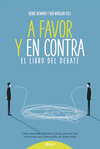Kitabı oku: «The Alkahest», sayfa 11
CHAPTER XI
Several months went by and brought no change to the House of Claes. Gabriel, under the wise management of his tutor, Monsieur de Solis, worked studiously, acquired foreign languages, and prepared to pass the necessary examinations to enter the Ecole Polytechnique. Marguerite and Felicie lived in absolute retirement, going in summer to their father’s country place as a measure of economy. Monsieur Claes attended to his business affairs, paid his debts by borrowing a considerable sum of money on his property, and went to see the forest at Waignies.
About the middle of the year 1817, his grief, slowly abating, left him a prey to solitude and defenceless under the monotony of the life he was leading, which heavily oppressed him. At first he struggled bravely against the allurements of Science as they gradually beset him; he forbade himself even to think of Chemistry. Then he did think of it. Still, he would not actively take it up, and only gave his mind to his researches theoretically. Such constant study, however, swelled his passion which soon became exacting. He asked himself whether he was really bound not to continue his researches, and remembered that his wife had refused his oath. Though he had pledged his word to himself that he would never pursue the solution of the great Problem, might he not change that determination at a moment when he foresaw success? He was now fifty-nine years old. At that age a predominant idea contracts a certain peevish fixedness which is the first stage of monomania.
Circumstances conspired against his tottering loyalty. The peace which Europe now enjoyed encouraged the circulation of discoveries and scientific ideas acquired during the war by the learned of various countries, who for nearly twenty years had been unable to hold communication. Science was making great strides. Claes found that the progress of chemistry had been directed, unknown to chemists themselves, towards the object of his researches. Learned men devoted to the higher sciences thought, as he did, that light, heat, electricity, galvanism, magnetism were all different effects of the same cause, and that the difference existing between substances hitherto considered simple must be produced by varying proportions of an unknown principle. The fear that some other chemist might effect the reduction of metals and discover the constituent principle of electricity, – two achievements which would lead to the solution of the chemical Absolute, – increased what the people of Douai called a mania, and drove his desires to a paroxysm conceivable to those who devote themselves to the sciences, or who have ever known the tyranny of ideas.
Thus it happened that Balthazar was again carried away by a passion all the more violent because it had lain dormant so long. Marguerite, who watched every evidence of her father’s state of mind, opened the long-closed parlor. By living in it she recalled the painful memories which her mother’s death had caused, and succeeded for a time in re-awaking her father’s grief, and retarding his plunge into the gulf to the depths of which he was, nevertheless, doomed to fall. She determined to go into society and force Balthazar to share in its distractions. Several good marriages were proposed to her, which occupied Claes’s mind, but to all of them she replied that she should not marry until after she was twenty-five. But in spite of his daughter’s efforts, in spite of his remorseful struggles, Balthazar, at the beginning of the winter, returned secretly to his researches. It was difficult, however, to hide his operations from the inquisitive women in the kitchen; and one morning Martha, while dressing Marguerite, said to her: —
“Mademoiselle, we are as good as lost. That monster of a Mulquinier – who is a devil disguised, for I never saw him make the sign of the cross – has gone back to the garret. There’s monsieur on the high-road to hell. Pray God he mayn’t kill you as he killed my poor mistress.”
“It is not possible!” exclaimed Marguerite.
“Come and see the signs of their traffic.”
Mademoiselle Claes ran to the window and saw the light smoke rising from the flue of the laboratory.
“I shall be twenty-one in a few months,” she thought, “and I shall know how to oppose the destruction of our property.”
In giving way to his passion Balthazar necessarily felt less respect for the interests of his children than he formerly had felt for the happiness of his wife. The barriers were less high, his conscience was more elastic, his passion had increased in strength. He now set forth in his career of glory, toil, hope, and poverty, with the fervor of a man profoundly trustful of his convictions. Certain of the result, he worked night and day with a fury that alarmed his daughters, who did not know how little a man is injured by work that gives him pleasure.
Her father had no sooner recommenced his experiments than Marguerite retrenched the superfluities of the table, showing a parsimony worthy of a miser, in which Josette and Martha admirably seconded her. Claes never noticed the change which reduced the household living to the merest necessaries. First he ceased to breakfast with the family; then he only left his laboratory when dinner was ready; and at last, before he went to bed, he would sit some hours in the parlor between his daughters without saying a word to either of them; when he rose to go upstairs they wished him good-night, and he allowed them mechanically to kiss him on both cheeks. Such conduct would have led to great domestic misfortunes had Marguerite not been prepared to exercise the authority of a mother, and if, moreover, she were not protected by a secret love from the dangers of so much liberty.
Pierquin had ceased to come to the house, judging that the family ruin would soon be complete. Balthazar’s rural estates, which yielded sixteen thousand francs a year, and were worth about six hundred thousand, were now encumbered by mortgages to the amount of three hundred thousand francs; for, in order to recommence his researches, Claes had borrowed a considerable sum of money. The rents were exactly enough to pay the interest of the mortgages; but, with the improvidence of a man who is the slave of an idea, he made over the income of his farm lands to Marguerite for the expenses of the household, and the notary calculated that three years would suffice to bring matters to a crisis, when the law would step in and eat up all that Balthazar had not squandered. Marguerite’s coldness brought Pierquin to a state of almost hostile indifference. To give himself an appearance in the eyes of the world of having renounced her hand, he frequently remarked of the Claes family in a tone of compassion: —
“Those poor people are ruined; I have done my best to save them. Well, it can’t be helped; Mademoiselle Claes refused to employ the legal means which might have rescued them from poverty.”
Emmanuel de Solis, who was now principal of the college-school in Douai, thanks to the influence of his uncle and to his own merits which made him worthy of the post, came every evening to see the two young girls, who called the old duenna into the parlor as soon as their father had gone to bed. Emmanuel’s gentle rap at the street-door was never missing. For the last three months, encouraged by the gracious, though mute gratitude with which Marguerite now accepted his attentions, he became at his ease, and was seen for what he was. The brightness of his pure spirit shone like a flawless diamond; Marguerite learned to understand its strength and its constancy when she saw how inexhaustible was the source from which it came. She loved to watch the unfolding, one by one, of the blossoms of his heart, whose perfume she had already breathed. Each day Emmanuel realized some one of Marguerite’s hopes, and illumined the enchanted regions of love with new lights that chased away the clouds and brought to view the serene heavens, giving color to the fruitful riches hidden away in the shadow of their lives. More at his ease, the young man could display the seductive qualities of his heart until now discreetly hidden, the expansive gaiety of his age, the simplicity which comes of a life of study, the treasures of a delicate mind that life has not adulterated, the innocent joyousness which goes so well with loving youth. His soul and Marguerite’s understood each other better; they went together to the depths of their hearts and found in each the same thoughts, – pearls of equal lustre, sweet fresh harmonies like those the legends tell of beneath the waves, which fascinate the divers. They made themselves known to one another by an interchange of thought, a reciprocal introspection which bore the signs, in both, of exquisite sensibility. It was done without false shame, but not without mutual coquetry. The two hours which Emmanuel spent with the sisters and old Martha enabled Marguerite to accept the life of anguish and renunciation on which she had entered. This artless, progressive love was her support. In all his testimonies of affection Emmanuel showed the natural grace that is so winning, the sweet yet subtile mind which breaks the uniformity of sentiment as the facets of a diamond relieve, by their many-sided fires, the monotony of the stone, – adorable wisdom, the secret of loving hearts, which makes a woman pliant to the artistic hand that gives new life to old, old forms, and refreshes with novel modulations the phrases of love. Love is not only a sentiment, it is an art. Some simple word, a trifling vigilance, a nothing, reveals to a woman the great, the divine artist who shall touch her heart and yet not blight it. The more Emmanuel was free to utter himself, the more charming were the expressions of his love.
“I have tried to get here before Pierquin,” he said to Marguerite one evening. “He is bringing some bad news; I would rather you heard it from me. Your father has sold all the timber in your forest at Waignies to speculators, who have resold it to dealers. The trees are already felled, and the logs are carried away. Monsieur Claes received three hundred thousand francs in cash as a first instalment of the price, which he has used towards paying his bills in Paris; but to clear off his debts entirely he has been forced to assign a hundred thousand francs of the three hundred thousand still due to him on the purchase-money.”
Pierquin entered at this moment.
“Ah! my dear cousin,” he said, “you are ruined. I told you how it would be; but you would not listen to me. Your father has an insatiable appetite. He has swallowed your woods at a mouthful. Your family guardian, Monsieur Conyncks, is just now absent in Amsterdam, and Claes has seized the opportunity to strike the blow. It is all wrong. I have written to Monsieur Conyncks, but he will get here too late; everything will be squandered. You will be obliged to sue your father. The suit can’t be long, but it will be dishonorable. Monsieur Conyncks has no alternative but to institute proceedings; the law requires it. This is the result of your obstinacy. Do you now see my prudence, and how devoted I was to your interests?”
“I bring you some good news, mademoiselle,” said young de Solis in his gentle voice. “Gabriel has been admitted to the Ecole Polytechnique. The difficulties that seemed in the way have all been removed.”
Marguerite thanked him with a smile as she said: —
“My savings will now come in play! Martha, we must begin to-morrow on Gabriel’s outfit. My poor Felicie, we shall have to work hard,” she added, kissing her sister’s forehead.
“To-morrow you shall have him at home, to remain ten days,” said Emmanuel; “he must be in Paris by the fifteenth of November.”
“My cousin Gabriel has done a sensible thing,” said the lawyer, eyeing the professor from head to foot; “for he will have to make his own way. But, my dear cousin, the question now is how to save the honor of the family: will you listen to what I say this time?”
“No,” she said, “not if it relates to marriage.”
“Then what will you do?”
“I? – nothing.”
“But you are of age.”
“I shall be in a few days. Have you any course to suggest to me,” she added, “which will reconcile our interests with the duty we owe to our father and to the honor of the family?”
“My dear cousin, nothing can be done till your uncle arrives. When he does, I will call again.”
“Adieu, monsieur,” said Marguerite.
“The poorer she is the more airs she gives herself,” thought the notary. “Adieu, mademoiselle,” he said aloud. “Monsieur, my respects to you”; and he went away, paying no attention to Felicie or Martha.
“I have been studying the Code for the last two days, and I have consulted an experienced old lawyer, a friend of my uncle,” said Emmanuel, in a hesitating voice. “If you will allow me, I will go to Amsterdam to-morrow and see Monsieur Conyncks. Listen, dear Marguerite – ”
He uttered her name for the first time; she thanked him with a smile and a tearful glance, and made a gentle inclination of her head. He paused, looking at Felicie and Martha.
“Speak before my sister,” said Marguerite. “She is so docile and courageous that she does not need this discussion to make her resigned to our life of toil and privation; but it is best that she should see for herself how necessary courage is to us.”
The two sisters clasped hands and kissed each other, as if to renew some pledge of union before the coming disaster.
“Leave us, Martha.”
“Dear Marguerite,” said Emmanuel, letting the happiness he felt in conquering the lesser rights of affection sound in the inflections of his voice, “I have procured the names and addresses of the purchasers who still owe the remaining two hundred thousand francs on the felled timber. To-morrow, if you give consent, a lawyer acting in the name of Monsieur Conyncks, who will not disavow the act, will serve an injunction upon them. Six days hence, by which time your uncle will have returned, the family council can be called together, and Gabriel put in possession of his legal rights, for he is now eighteen. You and your brother being thus authorized to use those rights, you will demand your share in the proceeds of the timber. Monsieur Claes cannot refuse you the two hundred thousand francs on which the injunction will have been put; as to the remaining hundred thousand which is due to you, you must obtain a mortgage on this house. Monsieur Conyncks will demand securities for the three hundred thousand belonging to Felicie and Jean. Under these circumstances your father will be obliged to mortgage his property on the plain of Orchies, which he has already encumbered to the amount of three hundred thousand francs. The law gives a retrospective priority to the claims of minors; and that will save you. Monsieur Claes’s hands will be tied for the future; your property becomes inalienable, and he can no longer borrow on his own estates because they will be held as security for other sums. Moreover, the whole can be done quietly, without scandal or legal proceedings. Your father will be forced to greater prudence in making his researches, even if he cannot be persuaded to relinquish them altogether.”
“Yes,” said Marguerite, “but where, meantime, can we find the means of living? The hundred thousand francs for which, you say, I must obtain a mortgage on this house, would bring in nothing while we still live here. The proceeds of my father’s property in the country will pay the interest on the three hundred thousand francs he owes to others; but how are we to live?”
“In the first place,” said Emmanuel, “by investing the fifty thousand francs which belong to Gabriel in the public Funds you will get, according to present rates, more than four thousand francs’ income, which will suffice to pay your brother’s board and lodging and all his other expenses in Paris. Gabriel cannot touch the capital until he is of age, therefore you need not fear that he will waste a penny of it, and you will have one expense the less. Besides, you will have your own fifty thousand.”
“My father will ask me for them,” she said in a frightened tone; “and I shall not be able to refuse him.”
“Well, dear Marguerite, even so, you can evade that by robbing yourself. Place your money in the Grand-Livre in Gabriel’s name: it will bring you twelve or thirteen thousand francs a year. Minors who are emancipated cannot sell property without permission of the family council; you will thus gain three years’ peace of mind. By that time your father will either have solved his problem or renounced it; and Gabriel, then of age, will reinvest the money in your own name.”
Marguerite made him explain to her once more the legal points which she did not at first understand. It was certainly a novel sight to see this pair of lovers poring over the Code, which Emmanuel had brought with him to show his mistress the laws which protected the property of minors; she quickly caught the meaning of them, thanks to the natural penetration of women, which in this case love still further sharpened.
Gabriel came home to his father’s house on the following day. When Monsieur de Solis brought him up to Balthazar and told of his admission to the Ecole Polytechnique, the father thanked the professor with a wave of his hand, and said: —
“I am very glad; Gabriel may become a man of science.”
“Oh, my brother,” cried Marguerite, as Balthazar went back to his laboratory, “work hard, waste no money; spend what is necessary, but practise economy. On the days when you are allowed to go out, pass your time with our friends and relations; contract none of the habits which ruin young men in Paris. Your expenses will amount to nearly three thousand francs, and that will leave you a thousand francs for your pocket-money; that is surely enough.”
“I will answer for him,” said Emmanuel de Solis, laying his hand on his pupil’s shoulder.
A month later, Monsieur Conyncks, in conjunction with Marguerite, had obtained all necessary securities from Claes. The plan so wisely proposed by Emmanuel de Solis was fully approved and executed. Face to face with the law, and in presence of his cousin, whose stern sense of honor allowed no compromise, Balthazar, ashamed of the sale of the timber to which he had consented at a moment when he was harassed by creditors, submitted to all that was demanded of him. Glad to repair the almost involuntary wrong that he had done to his children, he signed the deeds in a preoccupied way. He was now as careless and improvident as a Negro who sells his wife in the morning for a drop of brandy, and cries for her at night. He gave no thought to even the immediate future, and never asked himself what resources he would have when his last ducat was melted up. He pursued his work and continued his purchases, apparently unaware that he was now no more than the titular owner of his house and lands, and that he could not, thanks to the severity of the laws, raise another penny upon a property of which he was now, as it were, the legal guardian.
The year 1818 ended without bringing any new misfortune. The sisters paid the costs of Jean’s education and met all the expenses of the household out of the thirteen thousand francs a year from the sum placed in the Grand-Livre in Gabriel’s name, which he punctually remitted to them. Monsieur de Solis lost his uncle, the abbe, in December of that year.
Early in January Marguerite learned through Martha that her father had sold his collection of tulips, also the furniture of the front house, and all the family silver. She was obliged to buy back the spoons and forks that were necessary for the daily service of the table, and these she now ordered to be stamped with her initials. Until that day Marguerite had kept silence towards her father on the subject of his depredations, but that evening after dinner she requested Felicie to leave her alone with him, and when he seated himself as usual by the corner of the parlor fireplace, she said: —
“My dear father, you are the master here, and can sell everything, even your children. We are ready to obey you without a murmur; but I am forced to tell you that we are without money, that we have barely enough to live on, and that Felicie and I are obliged to work night and day to pay for the schooling of little Jean with the price of the lace dress we are now making. My dear father, I implore you to give up your researches.”
“You are right, my dear child; in six weeks they will be finished; I shall have found the Absolute, or the Absolute will be proved undiscoverable. You will have millions – ”
“Give us meanwhile the bread to eat,” replied Marguerite.
“Bread? is there no bread here?” said Claes, with a frightened air. “No bread in the house of a Claes! What has become of our property?”
“You have cut down the forest of Waignies. The ground has not been cleared and is therefore unproductive. As for your farms at Orchies, the rents scarcely suffice to pay the interest of the sums you have borrowed – ”
“Then what are we living on?” he demanded.
Marguerite held up her needle and continued: —
“Gabriel’s income helps us, but it is insufficient; I can make both ends meet at the close of the year if you do not overwhelm me with bills that I do not expect, for purchases you tell me nothing about. When I think I have enough to meet my quarterly expenses some unexpected bill for potash, or zinc, or sulphur, is brought to me.”
“My dear child, have patience for six weeks; after that, I will be judicious. My little Marguerite, you shall see wonders.”
“It is time you should think of your affairs. You have sold everything, – pictures, tulips, plate; nothing is left. At least, refrain from making debts.”
“I don’t wish to make any more!” he said.
“Any more?” she cried, “then you have some?”
“Mere trifles,” he said, but he dropped his eyes and colored.
For the first time in her life Marguerite felt humiliated by the lowering of her father’s character, and suffered from it so much that she dared not question him.
A month after this scene one of the Douai bankers brought a bill of exchange for ten thousand francs signed by Claes. Marguerite asked the banker to wait a day, and expressed her regret that she had not been notified to prepare for this payment; whereupon he informed her that the house of Protez and Chiffreville held nine other bills to the same amount, falling due in consecutive months.
“All is over!” cried Marguerite, “the time has come.”
She sent for her father, and walked up and down the parlor with hasty steps, talking to herself: —
“A hundred thousand francs!” she cried. “I must find them, or see my father in prison. What am I to do?”
Balthazar did not come. Weary of waiting for him, Marguerite went up to the laboratory. As she entered she saw him in the middle of an immense, brilliantly-lighted room, filled with machinery and dusty glass vessels: here and there were books, and tables encumbered with specimens and products ticketed and numbered. On all sides the disorder of scientific pursuits contrasted strongly with Flemish habits. This litter of retorts and vaporizers, metals, fantastically colored crystals, specimens hooked upon the walls or lying on the furnaces, surrounded the central figure of Balthazar Claes, without a coat, his arms bare like those of a workman, his breast exposed, and showing the white hair which covered it. His eyes were gazing with horrible fixity at a pneumatic trough. The receiver of this instrument was covered with a lens made of double convex glasses, the space between the glasses being filled with alchohol, which focussed the light coming through one of the compartments of the rose-window of the garret. The shelf of the receiver communicated with the wire of an immense galvanic battery. Lemulquinier, busy at the moment in moving the pedestal of the machine, which was placed on a movable axle so as to keep the lens in a perpendicular direction to the rays of the sun, turned round, his face black with dust, and called out, —
“Ha! mademoiselle, don’t come in.”
The aspect of her father, half-kneeling beside the instrument, and receiving the full strength of the sunlight upon his head, the protuberances of his skull, its scanty hairs resembling threads of silver, his face contracted by the agonies of expectation, the strangeness of the objects that surrounded him, the obscurity of parts of the vast garret from which fantastic engines seemed about to spring, all contributed to startle Marguerite, who said to herself, in terror, —
“He is mad!”
Then she went up to him and whispered in his ear, “Send away Lemulquinier.”
“No, no, my child; I want him: I am in the midst of an experiment no one has yet thought of. For the last three days we have been watching for every ray of sun. I now have the means of submitting metals, in a complete vacuum, to concentrated solar fires and to electric currents. At this very moment the most powerful action a chemist can employ is about to show results which I alone – ”
“My father, instead of vaporizing metals you should employ them in paying your notes of hand – ”
“Wait, wait!”
“Monsieur Merkstus has been here, father; and he must have ten thousand francs by four o’clock.”
“Yes, yes, presently. True, I did sign a little note which is payable this month. I felt sure I should have found the Absolute. Good God! If I could only have a July sun the experiment would be successful.”
He grasped his head and sat down on an old cane chair; a few tears rolled from his eyes.
“Monsieur is quite right,” said Lemulquinier; “it is all the fault of that rascally sun which is too feeble, – the coward, the lazy thing!”
Master and valet paid no further attention to Marguerite.
“Leave us, Mulquinier,” she said.
“Ah! I see a new experiment!” cried Claes.
“Father, lay aside your experiments,” said his daughter, when they were alone. “You have one hundred thousand francs to pay, and we have not a penny. Leave your laboratory; your honor is in question. What will become of you if you are put in prison? Will you soil your white hairs and the name of Claes with the disgrace of bankruptcy? I will not allow it. I shall have strength to oppose your madness; it would be dreadful to see you without bread in your old age. Open your eyes to our position; see reason at last!”
“Madness!” cried Balthazar, struggling to his feet. He fixed his luminous eyes upon his daughter, crossed his arms on his breast, and repeated the word “Madness!” so majestically that Marguerite trembled.
“Ah!” he cried, “your mother would never have uttered that word to me. She was not ignorant of the importance of my researches; she learned a science to understand me; she recognized that I toiled for the human race; she knew there was nothing sordid or selfish in my aims. The feelings of a loving wife are higher, I see it now, than filial affection. Yes, Love is above all other feelings. See reason!” he went on, striking his breast. “Do I lack reason? Am I not myself? You say we are poor; well, my daughter, I choose it to be so. I am your father, obey me. I will make you rich when I please. Your fortune? it is a pittance! When I find the solvent of carbon I will fill your parlor with diamonds, and they are but a scintilla of what I seek. You can well afford to wait while I consume my life in superhuman efforts.”
“Father, I have no right to ask an account of the four millions you have already engulfed in this fatal garret. I will not speak to you of my mother whom you killed. If I had a husband, I should love him, doubtless, as she loved you; I should be ready to sacrifice all to him, as she sacrificed all for you. I have obeyed her orders in giving myself wholly to you; I have proved it in not marrying and compelling you to render an account of your guardianship. Let us dismiss the past and think of the present. I am here now to represent the necessity which you have created for yourself. You must have money to meet your notes – do you understand me? There is nothing left to seize here but the portrait of your ancestor, the Claes martyr. I come in the name of my mother, who felt herself too feeble to defend her children against their father; she ordered me to resist you. I come in the name of my brothers and my sister; I come, father, in the name of all the Claes, and I command you to give up your experiments, or earn the means of pursuing them hereafter, if pursue them you must. If you arm yourself with the power of your paternity, which you employ only for our destruction, I have on my side your ancestors and your honor, whose voice is louder than that of chemistry. The Family is greater than Science. I have been too long your daughter.”
“And you choose to be my executioner,” he said, in a feeble voice.
Marguerite turned and fled away, that she might not abdicate the part she had just assumed: she fancied she heard again her mother’s voice saying to her, “Do not oppose your father too much; love him well.”










